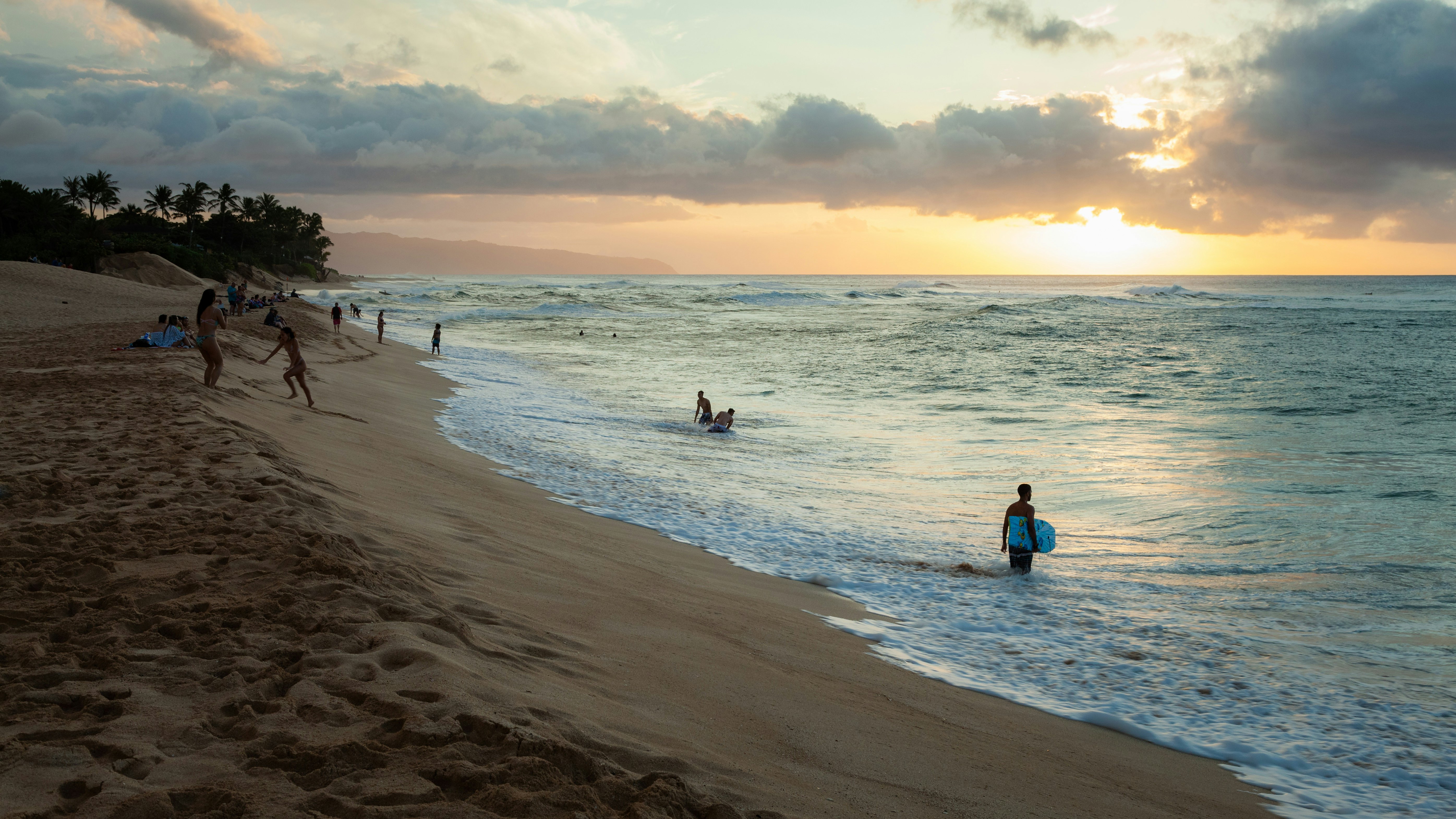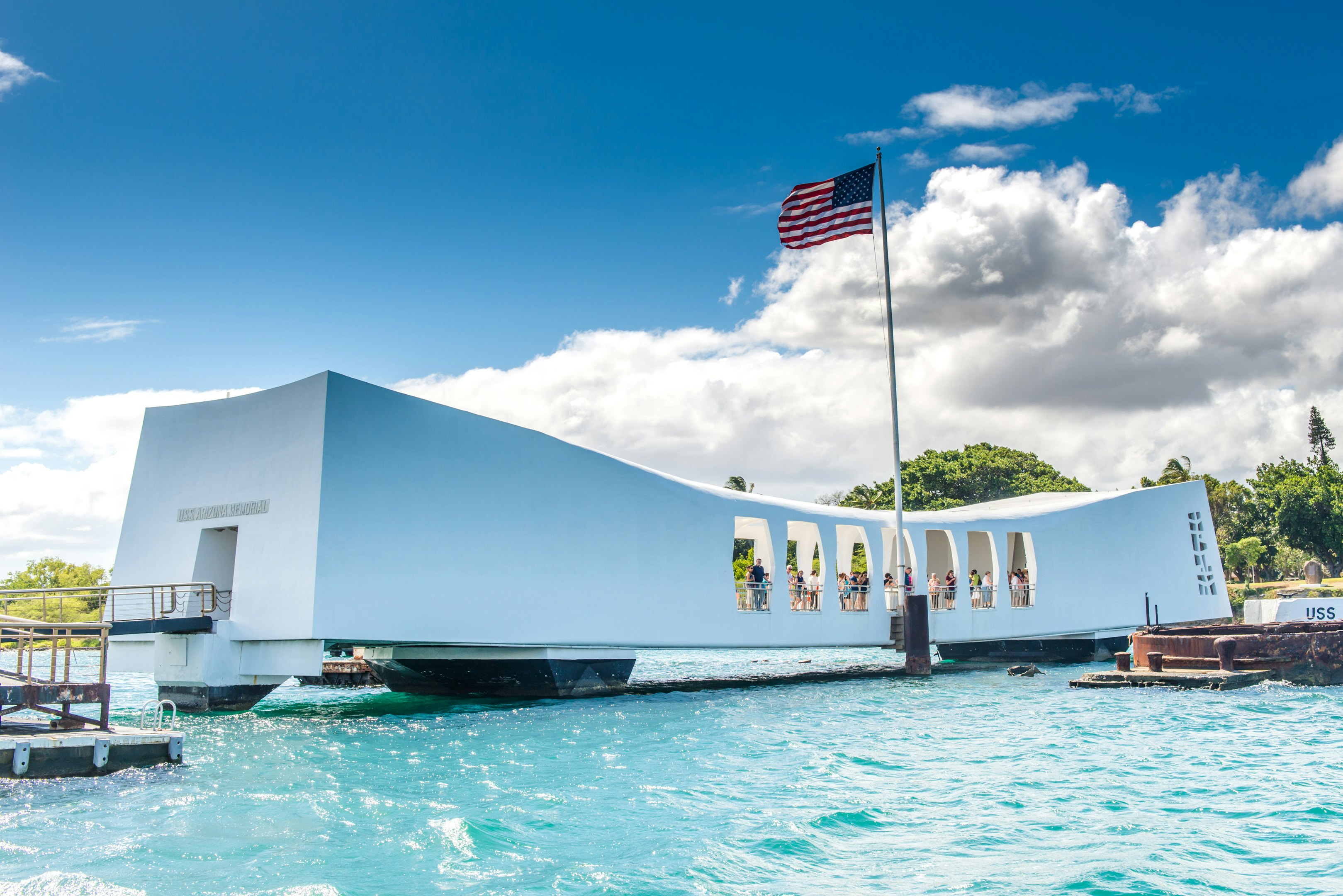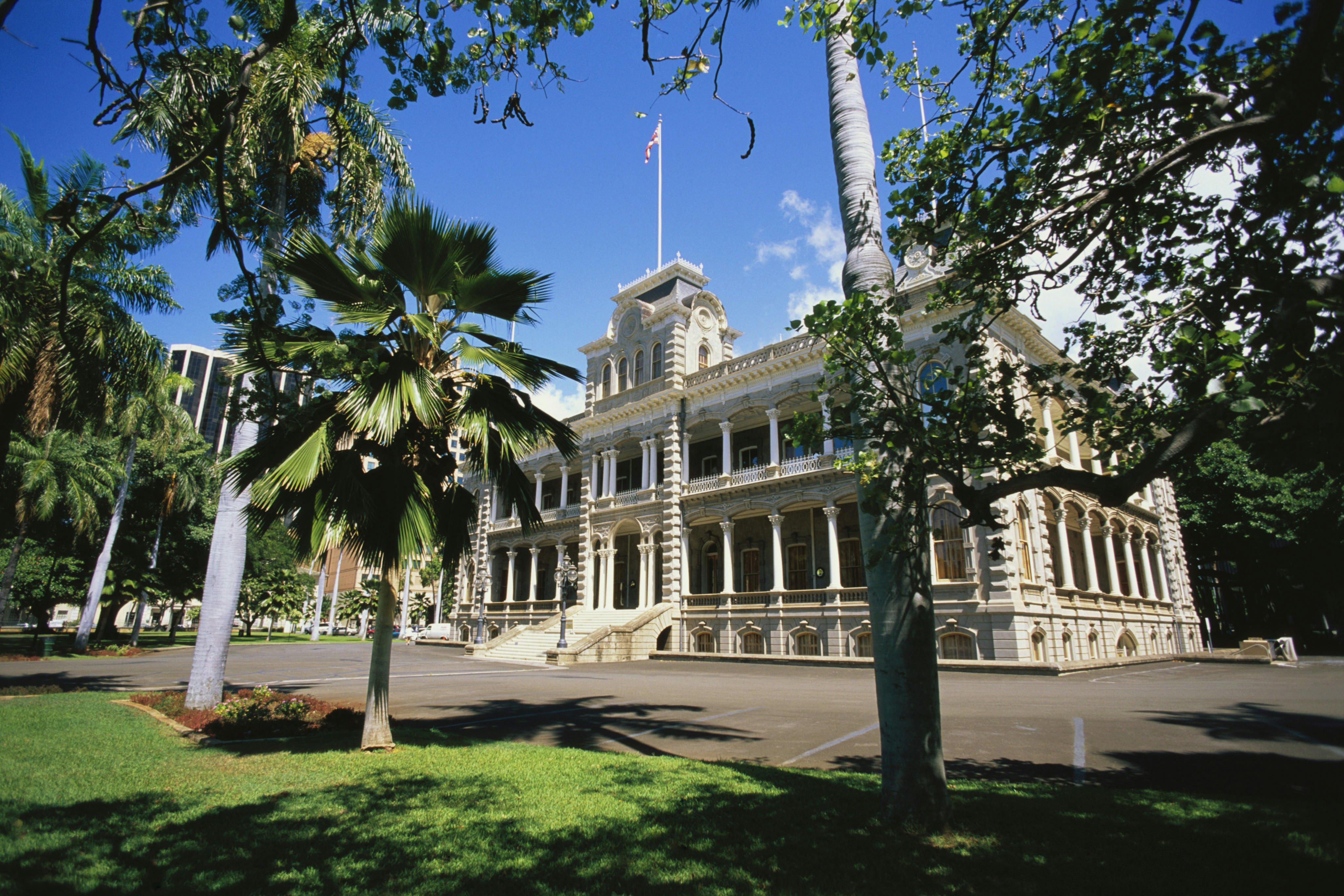
The 30 best countries, cities and regions to visit in 2025

Narrow down your Hawaii hit list with these top places to visit. Alvis Upitis/Getty Images
No matter what you're looking for in a vacation – adventure, relaxation, romance, cultural experiences, food – Hawaii has it all.
Every island has its own kind of vibe, from the laid-back serenity of Kauaʻi to the bustling beach towns of Maui. There are so many unique experiences, too, like hiking to an active volcano on Hawaiʻi Island and watching monster surf crash on Oʻahu's North Shore.
With so many options, here's a shortcut to the best experiences you can have in the Aloha State.
Waikiki on Oʻahu's sunny south shore is the state's most famous resort town. Over the years, the neighborhood has evolved to be less kitschy and more authentic. Hotels offer lei-making classes in their open-air lobbies, and traditional hula is showcased on the tiki torch-lit hula mound on Kuhio Beach. Take surfing lessons from modern-day beach boys or indulge in afternoon tea at the historic Moana Surfrider. Some of the island's best restaurants are located in Waikiki, too.
Planning tip: The Hilton Hawaiian Village Waikiki Beach Resort has been putting on a fireworks show every Friday night since 1988 (bar the pandemic years). Bring a picnic dinner and find a spot on the beach to watch the skies light up. The show starts at 7:45pm during the winter and 8pm in the summer.
Explore more of O'ahu with this ultimate long weekend itinerary

The 323,431-acre Hawaiʻi Volcanoes National Park on Hawaiʻi Island is a place unlike anywhere else in Hawaii (or the US). This is one of the few places in the world where you can drive up to safely view an active volcano. Kilauea, an active shield volcano, had been, up until 2018, continuously erupting and altering the landscape since 1983. It's currently not active, but that can change any day. The national park – one of five on the Big Island – stretches from sea level to the summit of the 13,679ft Mauna Loa, one of the largest volcanoes in the world. Trek along one of dozens of hiking routes in the park and see old lava flows and tubes, steam vents, and native trees and birds.
Detour: Stop at Volcano Village, a rustic town in the middle of a lush rainforest filled with native hapuʻu fern and 'ōhiʻa trees just outside the park. You can find quaint vacation rentals here, a handful of restaurants, a farmers market on Sundays, a small winery that sells locally produced wine, an orchid farm and the Volcano Art Center, a working arts studio and gallery.
Save our complete first-timer's guide to Hawaiʻi Volcanoes National Park
Undeveloped and often overlooked, Molokaʻi offers some of the most unique experiences of any of the Hawaiian Islands. Spanning 38 miles long and 10 miles across at its widest point, this island – the fifth largest in Hawaii – is home to the world's tallest sea cliffs, the longest waterfall in the Islands and one of the state's largest white-sand beaches, Papohaku Beach.
There are no big resorts or traffic lights here; instead, you'll find the windswept Moʻomomi Dunes, the 2744-acre Kamakou Preserve with its unique montane bog, and the secluded Kalaupapa Peninsula, once an isolated community of patients with Hansen's disease. Stop at Kanemitsu Bakery in Kaunakakai for freshly made Molokaʻi sweet bread right out of the oven.

The 53-mile Hana Highway – also known as the Road to Hana – is as scenic as it is winding. The road twists across 59 mostly one-lane bridges, along plunging cliffs, past waterfalls and around 620 turns to the unspoiled town of Hana on Maui's northeast coast. The drive itself – which can take several hours – is part of the journey. Once in Hana, enjoy hala tree-lined Hamoa Beach, sunbathe at Waiʻānapanapa State Park's black-sand beach, or hike to the 400ft Waimoku Falls in the Kīpahulu end of Haleakalā National Park.
Planning tip: If you're planning to visit Waiʻānapanapa State Park, you'll have to book reservations, which can be made up to 30 days in advance. It costs $5 per person and $10 for parking per non-commercial vehicle.
The towering green cliffs of the fabled Nāpali Coast rise 2000ft from the ocean and stretch 15 miles along Kauaʻi's rugged northern coastline. You can experience these verdant valleys and razor-edged cliffs aboard a catamaran, on a kayak, from a helicopter or along the 11-mile Kalalau Trail.
Planning tip: To get to Keʻe Beach, the start of the Kalalau Trail, you'll need to make advance reservations to enter Hāʻena State Park. It costs $5 for out-of-state visitors to enter the park, $10 for each car.

In winter – from November to February – some of the world's best surfers (and thousands of spectators) flock to Oʻahu's North Shore and its 7 miles of famous breaks, from Banzai Pipeline to Sunset Beach. Once in a while, the waves are big enough (consistently larger than 40ft, measured from the front of the wave) at Waimea Bay to hold the prestigious, invite-only Eddie Aikau Big Wave Invitation. Summer brings calmer ocean conditions, great for swimming and snorkeling. The colorful beach town of Haleʻiwa features cute boutiques, eateries and the famous Matsumoto Shave Ice shop.
Detour: To get a bird's-eye view of this famous coastline, take the 2-mile ʻEhukai Pillbox hike. The trail climbs the side of the northern Koʻolau Mountains to WWII bunkers that offer panoramic views of the entire North Shore coastline.
Catching the sunrise at the top of Haleakalā, a dormant volcano that rises to 10,023ft above sea level, is one of the most popular activities on Maui. Reservations are required for sunrise – and the fee doesn't include entrance into the national park – and can be hard to get. Consider viewing the sunset instead and staying for the night sky. The park also has numerous hiking trails through otherworldly landscapes and the chance to see the endangered ʻāhinahina (silversword) and nēnē (Hawaiian goose), the state bird.
Planning tip: The park offers pristine dark skies – with minimal light pollution – perfect for stargazing. Temperatures can drop quickly at the summit, so dress warmly and bring layers. You'll also want to bring your own snacks, as there are no food or drinks available in the park.

On Kauaʻi's quiet north shore is the sleepy town of Hanalei, marked by emerald green mountains, kalo loʻi (flooded taro fields) and some of the island's best beaches, including the breathtaking Hanalei Bay with its historic pier. Browse art galleries and boutiques, eat fresh poke from Hanalei Poke and plant-based taro doughnuts from Holey Grail, and walk around a farmers market.
Detour: About 2 miles west of Hanalei Bay is Lumahaʻi Beach, made famous by the 1958 classic film South Pacific. This is where Mitzi Gaynor spent her time "washing that man right out of her hair."
Maunakea, or "white mountain," is, at 13,802ft above sea level, the world's tallest mountain when measured from its base. (More than half, or 19,698ft, of Maunakea lies underwater, making it 33,500ft from base to summit.) It's considered one of the most sacred of all Hawaiʻi volcanoes and is known by Native Hawaiians as a region of the gods. It's also a hub of astronomical observation with more than a dozen massive telescopes from around the world. You can book guided stargazing tours with outfitters like Hawaiʻi Forest & Trail.
Detour: In April, Hilo, which is about 30 minutes west of Maunakea, hosts the annual Merrie Monarch Festival, a competitive hula festival featuring some of the state's best dancers and performers. You have to book tickets in advance to attend the event, but the craft show, which is a huge draw, is open to the public.

Known for the 1941 attack on the USS Arizona, which launched the US into WWII, Pearl Harbor draws millions of visitors each year to the memorial erected in honor of the 1102 men who are still entombed in the metal hull of the battleship. You can catch a boat to the USS Arizona Memorial, tour the aircraft hangars of the Pearl Harbor Aviation Museum, and stand on the decks of the "Mighty Mo" battleship where Imperial Japan formally surrendered in 1945. Pearl Harbor was once known as Wai Momi, or pearl waters, because of its abundant oyster beds.
On the slopes of Haleakalā are the quaint towns of Kula and Makawao, collectively known as Upcountry Maui. Up here, the air is crispier, and the vibe is slower. Pick fresh strawberries in season at Kula Country Farms, wander around the fragrant Aliʻi Kula Lavender Farm, or feed goats at Surfing Goat Dairy. This area is famous for its paniolo, or Hawaiian cowboys.
Detour: Not many visitors know that grapes are grown here. Open since 1974, MauiWine produces wines made from estate-grown grapes, pineapples and raspberries. Visit its tasting room at the picturesque ʻUlupalakua Ranch.

Called the "Grand Canyon of the Pacific," Waimea Canyon, with its buttes, crags and earthen colors, stretches 10 miles long, is 1 mile wide and is more than 3600ft deep. Stop at the Waimea Canyon Lookout for sweeping views of the canyon and the 800ft Waipoʻo Falls. But you can also experience the canyon via numerous hiking trails, on horseback and from a helicopter. Any way you see it, it's breathtaking.
Detour: The best trails are located within the 4345-acre Kōkeʻe State Park. The cost is $5 per person (nonresident) and $10 per car. From the park, you can stop at the Kalalau Lookout at 4120ft above the Nāpali Coast, with commanding views of the lush, amphitheater-headed Kalalau Valley. Camping is available, and the restaurant is worth a stop (but note: it only serves breakfast and lunch.)
Head south from Kailua-Kona, and you'll be in coffee country. This area – Kaʻawaloa (Captain Cook), Hōnaunau, Kāʻu – is known for its high-quality coffee grown exclusively in this high elevation and volcanic soils on the slopes of Hualālai Volcano. There are hundreds of farms here, and many offer guided tours and free tastings. Hōlualoa is a small artsy town with cute shops. Kealakekua Bay in the region of Captain Cook provides some of the island's best snorkeling. And Puʻuhonua o Hōnaunau National Historical Park is a sacred place of refuge that you wander on a half-mile walking tour.
Detour: In Keauhou, you can dive at night with the gentle manta rays that swim along this coastline. Seeing these graceful giants glide and twirl in the water with you is an experience you won't likely forget.

Built in 1882 under King David Kalākaua, ʻIolani Palace in Downtown Honolulu is the only royal residence in the US. It took three years to complete at a cost of $343,595, with Hawaiʻi's first electric light system, flush toilets and intra-house telephones. The last two monarchs of the Hawaiian Kingdom – King Kalākaua and his sister and successor, Queen Liliʻuokalani – resided here until the overthrow of the kingdom in 1893. You can tour this American Florentine-style palace and see its throne rooms, dining rooms and the private living quarters of the royal family.
Detour: Walk to nearby Chinatown and browse the markets or eat at one of the many restaurants – ranging from Korean takeout to poke bowls to restaurants run by James Beard Award-winners and nominees – in this neighborhood.
Three miles off shore from Wailea on Maui is Molokini Crater, known for its deep, crystal-clear waters teeming with marine life. This crescent-shaped islet is a marine preserve, home to more than 250 species of tropical fish. The only way to get to this popular snorkeling and diving site is by boat.
Planning tip: While the boat ride out to Molokini is typically smooth, the journey back can be tumultuous. If you're prone to seasickness, either sit in the center of the boat where it's more stable or take some motion-sickness remedies.
A quick 15-minute drive from Honolulu, Kailua seems like a world away. The beach town is built around Kailua Beach, a powdery-white stretch of sand that runs 2.5 miles long. People fish, surf, kayak, swim and paddle canoes in these waters. Nearby Lanikai Beach, with its unobstructed views of the Mokulua Islands, is another popular stop for beach lovers. It's smaller and more secluded than Kailua Beach, but often more crowded because of its reputation for calm waters and gorgeous vistas. The town itself boasts popular restaurants, boutiques, local breweries and a great locally-owned independent bookshop called Bookends.
Planning tip: Consider exploring Kailua town by bike. You can rent one from The Bike Shop. (There's no city-run bike-sharing on this side of the island.) The shop has a range of cruisers, mountain bikes and road bikes for rent, complete with helmets and bike locks. Electra cruises – the most popular bikes – start at $18 for up to four hours. You can book online and pick it up at the shop.
Open in 1986, the locally owned Old Lahaina Lūʻau on Maui has been a favorite lūʻau for decades, showcasing traditional hula, music and food. It's located right on the ocean off Front Street in Lahaina with great sunset views. Tickets include live entertainment, an open bar, historical storytelling and chanting, and an all-you-can-eat buffet with Hawaiian staples like lau lau, kālua pig, poi and poke.

This protected nature preserve in East Honolulu is one of the best spots to snorkel on Oʻahu. About 400 species of fish inhabit this bay, along with honu (Hawaiian green sea turtles) and the occasional endangered Hawaiian monk seal. There are restrictions for access to this popular bay: online reservations are required, and it costs $25 per person for non-Hawaii residents 13 years and older. Parking is another US$3 per car. The bay is closed on Mondays and Tuesdays.
Planning tip: You can rent snorkel gear at the bay, so you don't have to lug your own. While you can walk down the steep road to the beach, you can also opt to take the free tram (we recommend that on the way back to your car).
Least known of all the Hawaiian Islands – and the smallest inhabited island – Lanaʻi is an ideal escape. Stay in luxurious resorts with world-class amenities fronting the beautiful and secluded Hulopoʻe Beach, a designated marine preserve filled with colorful fish and sometimes spinner dolphins. Or explore the rest of the island – the wild and windswept 8-mile Shipwreck Beach (complete with an actual shipwreck), the ancient fishing village of Kaunolū, or visit the strange landscape of Keahikawelo (Garden of the Gods).
Planning tip: If you want to venture outside the resorts of Lanaʻi City, you'll need to rent a four-wheel drive vehicle. There's no public transportation or ride-sharing on the island.